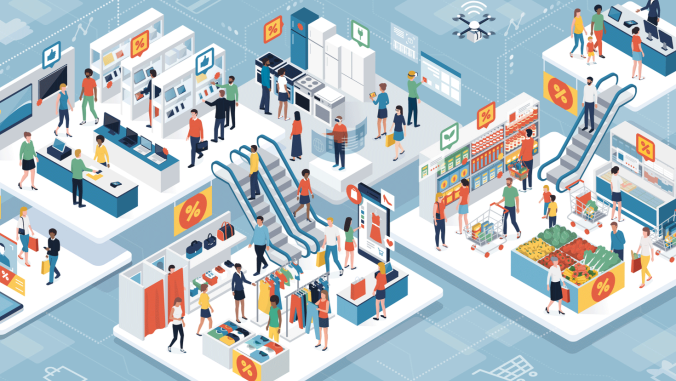Sustainable lifestyles: A new frontier for business?
<p>Companies shift greener despite low consumer demand.</p>

Shopping image by 06photo via Shutterstock.
Over the past several years, many companies have been experimenting with ways to encourage more sustainable lifestyles, whether by proposing healthier foods, making packaging more recyclable or financing rental bikes in major cities. Are we just spinning our wheels, or can sustainable lifestyles really deliver on the promise to help the world’s 7 billion people enjoy prosperous lives within the planet’s boundaries?
What is the opportunity for your company? BSR and Futerra launched the Sustainable Lifestyles Frontier Group with nine member companies -- Carlsberg Breweries, Cathay Pacific, Disney, eBay, Hilton Worldwide, Johnson & Johnson, L’Oréal, Mars and Mondelez -- to answer this question.
Judging by the results of our group’s initial survey (released this month), these companies aren’t the only ones that believe business has the power to inspire, persuade and even gently coerce consumers into sustainable and ethical behaviors. Of the representatives from 54 global companies surveyed, across a range of sectors from consumer goods and retail to financial services and entertainment, 40 percent said their company is encouraging consumers to adopt more sustainable lifestyles, and an additional 40 percent believe their company will do so in the next three to five years.
Interestingly, respondents do not believe this trend is driven by consumer demand. Company executives feel most consumers today are only moderately interested; respondents estimate that only 2 percent of consumers are “very interested” in sustainable lifestyles. However, those polled do believe that within five years, 98 percent of consumers will be moderately to very interested in sustainable lifestyles. This belief by company representatives polled is supported by recent consumer activism and studies that show an emerging generation of socially and environmentally conscious purchasers.
According to the respondents whose companies are active in sustainable lifestyles, their companies are pursuing this work due to regulation, risk and reputation -- the typical drivers of sustainable business activity. However, company representatives also expect these drivers to change as increasing market share, sales and innovation begin to spur growth by 2018.
To shift from reactive business drivers for mildly engaged consumers to proactive value creators for engaged citizens, companies have a lot of ground to cover. Through a series of workshops, case studies and research, the Sustainable Lifestyles Frontier Group is working to understand the business value provided by consumer behavior change efforts (recycling, making healthier food choices, saving water) and how to create replicable models for all businesses to learn from.




